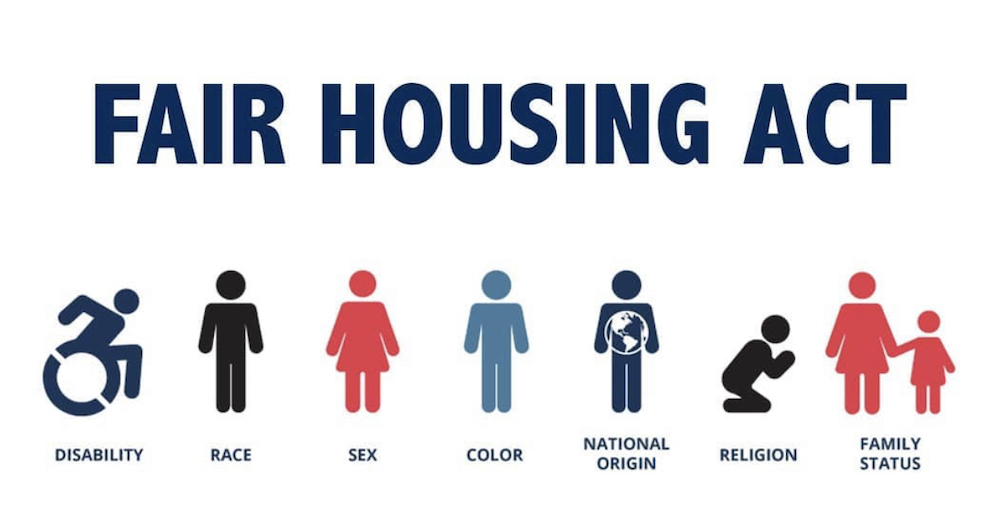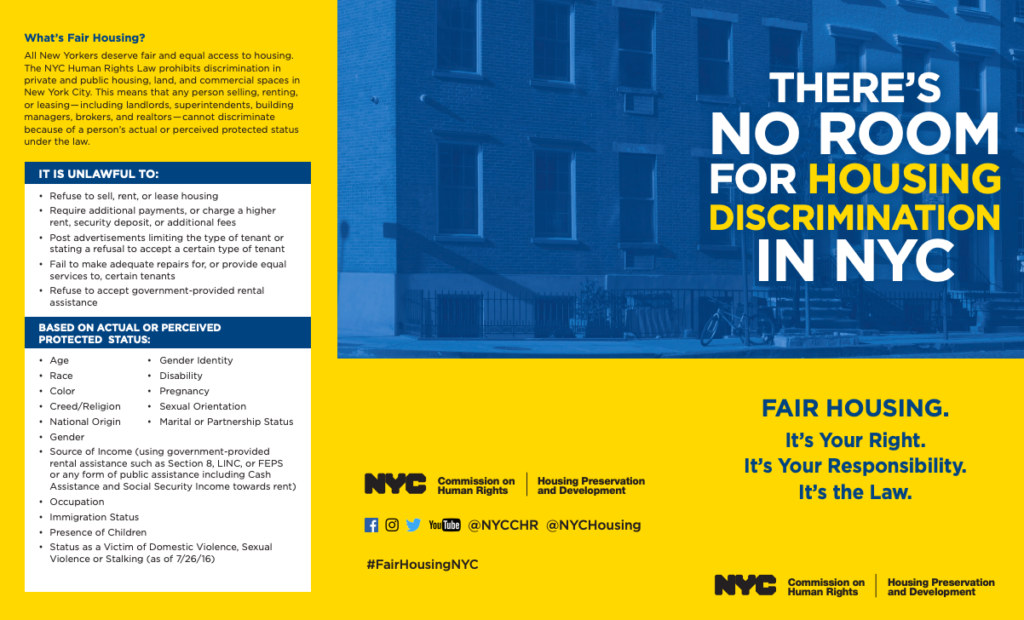
What Landlords Should Know About Fair Housing
In the wake of riots in the late 1960s and the assassination of the Rev. Dr. Martin Luther King Jr., US president Lyndon B. Johnson recommended passage of fair housing laws which amended the Civil Rights Act. Prior to the enactment of this law, property owners were free to discriminate for various reasons.
Since its passage there have been revisions to the law, as well as state and local regulations that provide security for protected classes. As a landlord, it is important for you to be familiar with these practices, not only to avoid lawsuits, but to provide a simple and fair leasing process for all applicants.
Race, Color, Religion & National Origin
The original Civil Rights Act of 1968 prohibited refusing to sell or rent a dwelling to any person due to their race, color, religion or national origin. I’m commonly asked by prospects “what type of people live in the area/building?” While it may sound innocent and truthful to say “lots of Catholics” or “there’s a significant number of Asians”, it’s best to steer clear of discussing demographics.
Inform the prospect to review the U.S. Census for the zip code or invite the prospect to take a walk around the neighborhood themselves. The point is to allow the prospect to do their own research so that you don’t ‘steer’ them towards or away based on population.
You must also be very mindful of how you advertise a unit. Your rental property may be located near amazing Mexican restaurants, but you cannot advertise your unit stating that its located in a “predominantly Mexican neighborhood”.
Sex
In 1974, sex was added as a protected class. When marketing your apartment, avoid terms like “bachelor pad” or saying that “women are preferred”. In addition, it is illegal to sexually harass your tenant or to request sexual favors in exchange for discounts on rent ‘quid-pro-quo’.
Familial Status & Disabilities
The Civil Rights Act of 1968 was further amended in 1988 to provide protections for families & disabled individuals. If an applicant has children, you cannot refuse to provide them with housing, so long as you are compliant with local zoning laws. Likewise, in advertising, stating that your home is “excellent for families” can raise red flags.
Avoid advertising a preferred age range, like saying only those who are 45 years old & younger, can reside in the apartment.
New York City Human Rights Law

The Human Rights Law in New York City goes further by creating additional protected classes.
- Color
- Giving someone a preference because of the color of their skin.
- Citizenship Status
- Refusing to rent to someone because of their citizenship status & fear that they might get deported.
- Gender Identity
- Telling an applicant who is transgender that you cannot rent to them because of your religious beliefs.
- Lawful Occupation
- Denying a renter because they are on military reserve or an attorney or self-employed.
- Lawful Source of Income
- Refusing to rent to someone who has a government program such as Section 8. Advertising
“No Section 8” in a listing.
- Refusing to rent to someone who has a government program such as Section 8. Advertising
- Sexual Orientation
- Prohibiting LGBTQ people from renting the unit.
- Status as a Veteran or Active Servicemember
- Telling an applicant that you cannot rent to them because they may be called to serve overseas.
- Status as a Victim of Domestic Violence
- Denying a renter due to your belief that their ex-girlfriend might show up.

Before deciding to put your unit on the market, create a list of criteria that an applicant would need to meet in order to apply for your rental unit. You would want to stick to these criteria and apply these requirements to all parties—regardless of income.
You may want to hire an experienced real estate agent to represent you and guide you through the process. A real estate agent who knows the best fair housing practices can ensure that you remain compliant and can create a transparent leasing workflow to make renting your unit simple and efficient.

Whether you’re looking to buy a new home or you’re a landlord seeking a new tenant, many will agree that Dondre D. Roberts is an expert in the complex field of New York City real estate. Having sold and leased $10 million dollars in real estate, Dondre can be counted on for his expertise, drive and tenacity to fight for his clients. He has worked for Nest Seekers International, a global real estate firm, large landlords and mom and pop owners alike. In his spare time, Dondre enjoys brunching, dog-sitting, traveling, coffee sipping, and reading the New York Times. He also likes Darth Vader, is a proud Bronxite, and is left-handed.
